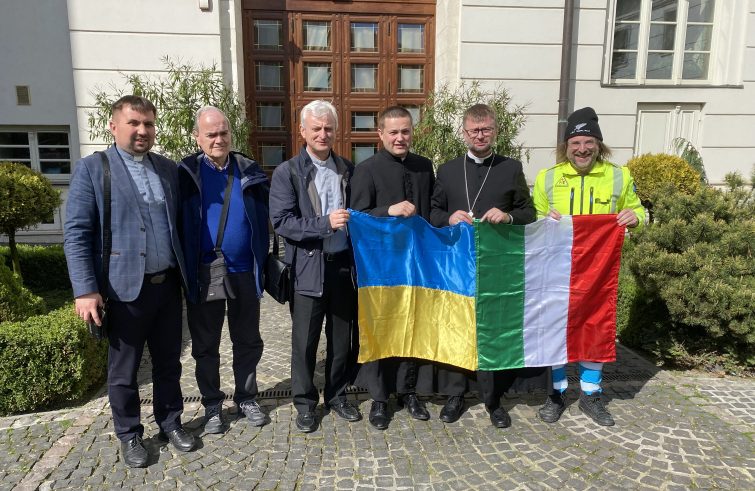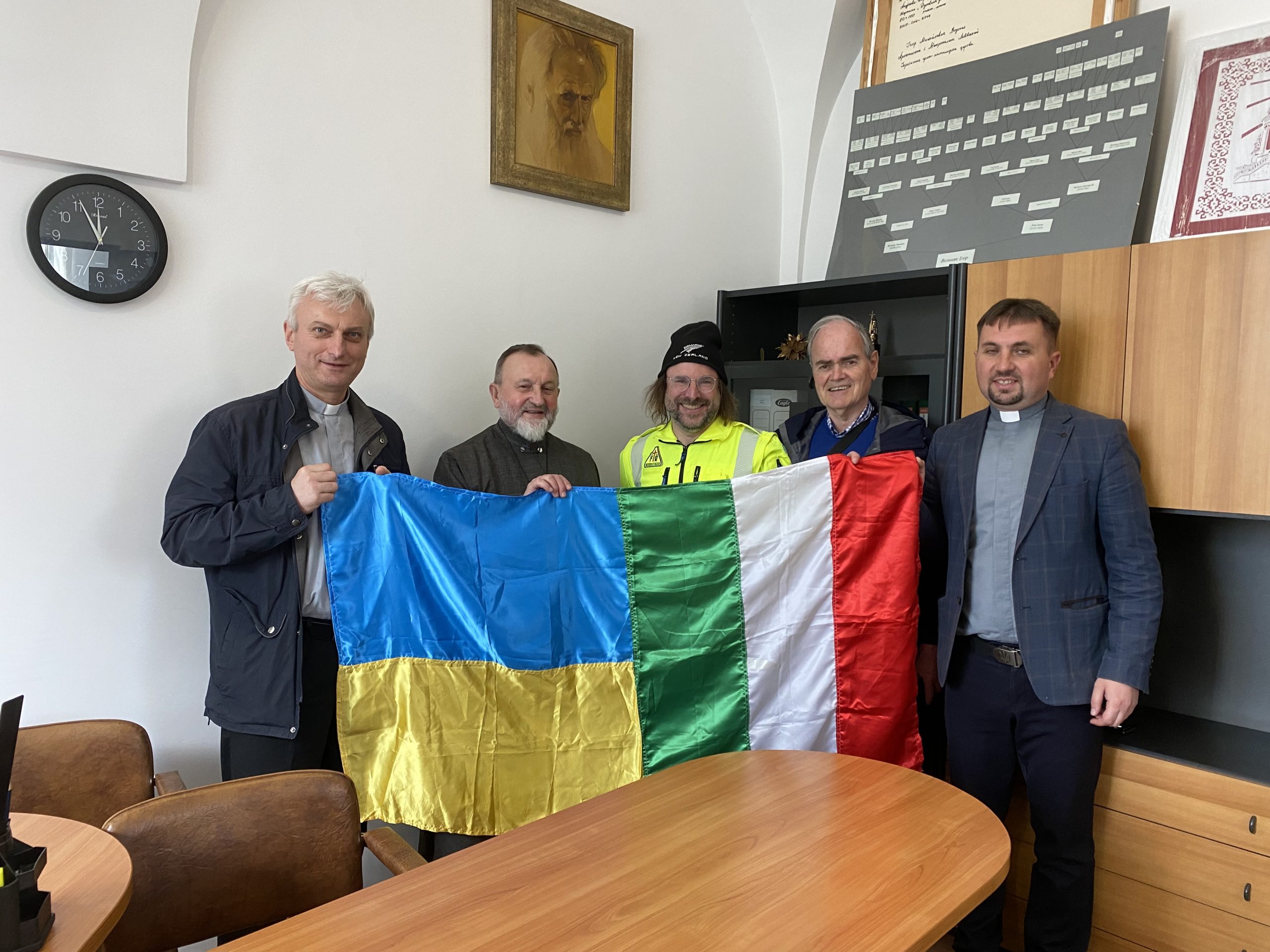
“Russia is not as strong as is commonly perceived.” These were the first comments shared by Monsignor Edward Kawa, auxiliary bishop of Ukraine, during our meeting last week at the Roman Catholic Archdiocese of Lviv. The conversation then turned to the ongoing war and the resulting challenges. The prelate, who is also the Secretary of the Ukrainian Bishops’ Conference, lightened the mood with a humorous remark: “When the air raid sirens sound, children from the nearby school seek refuge in the basement, but they do express their disappointment at the lack of Internet access there.”
The bishop expressed his gratitude for the aid delivered from across Europe, including the aids shipped from the city of Cesena, which led to the creation of a solidarity network involving the Romagna region and Ukraine. During the first months of the war, up to 15 aid trucks were dispatched daily. Currently, 2-3 are dispatched weekly. Despite the rising cost of living, pensions have remained unchanged, leaving many elderly people struggling. Many of them avail themselves of our soup kitchens in order to save money. This population group and those refugees fleeing from the eastern part of the country, closest to the conflict zone, have urgent needs. We have provided many power generators to Kharkiv, which is often left without electricity, but we have not forgotten our poor. Archbishop Kawa recalls the 19 September shelling of the Caritas Spes warehouse in Lviv, which was considered to be a safer location than those in the eastern part of the country. The archdiocese estimates that approximately 300 tonnes of humanitarian goods were destroyed in the attack. With regard to rumours of possible bribery, the bishop clarifies: “These rumours are intentionally disseminated to put the Church in a bad light.” Caritas is the charity that provides the most amount of aid to Ukraine. The Church is held in high esteem and does its utmost to act in the best possible way.” The archbishop went on to describe the meticulous controls and the support coming in from local companies. “Many of these companies offered us their warehouses to store the goods.” There remains a pressing need for power generators, while in winter, heating stoves are very useful. “I pray for an end to the war every day,” states Monsignor Kawa as our meeting draws to a close. He then adds, “Who sparked off the conflict? At times, those responsible are not acknowledged.” What will become of this country after the war? “It will experience significant growth,” the bishop replies. “It will take time. We put out hope in the Lord. And we do not forget those who have lost their husbands and children.” “We will meet again after the war, in a few months or weeks. Who knows?”
In Lviv, we also met with Archbishop Ihor Voznyak of the Ukrainian Greek Catholic Church. “This conflict has taken a heavy toll. We all carry the scars. I spoke to a chaplain who returned from the front line. He was wounded in the arm and is currently undergoing physical rehabilitation. There are 20 priests serving as military chaplains. Only one has been wounded so far. I pray to God every day for an end to the war. It’s not important if we win or lose.”












